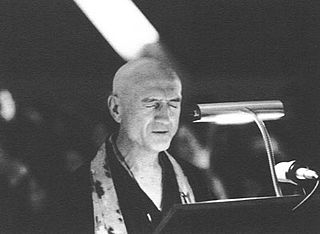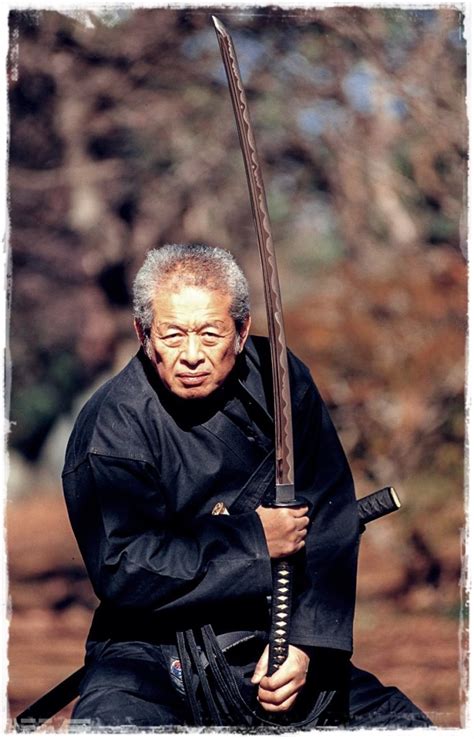A Quote by Philip Kapleau
Zen Master Dogen has pointed out that anxiety, when accepted, is the driving force to enlightenment in that it lays bare the human dilemma at the same time that it ignites our desire to break out of it.
Related Quotes
There was a famous Zen master whom people would seek out to become enlightened. He was strict and would occupy people with things having nothing to do with seeking enlightenment. You see, that is the only way to achieve enlightenment; by not focusing on achieving it. Then, one day it will just come to you.
Sanity and enlightenment...I've been reading a new book Dogen's Genjo Koan: Three Commentaries, and it contains a commentary on Genjo Koan by Shunryu Suzuki, the author who wrote Zen Mind, Beginners Mind. He doesn't mention sanity at all but I think that one possible definition of enlightenment would be a kind of profound sanity, where being insane is no longer an option.
If you come across an insane person who's talking gibberish, you can't make any sense of it at all and that would be one way that enlightenment is different. If you read Dogen, a lot of his stuff is very strange and is coming from a different place than what we're used to, but at the same time, it's not senseless ramblings and that's part of what attracted me to Dogen. I didn't get it, but it was sane. It's not some guy raving about UFO's or Moses living in his bathtub, it's was actually something sane that I just didn't get, if that makes sense?
If the oarsmen of a fast-moving ship suddenly cease to row, the suspension of the driving force of the oars doesn't prevent the vessel from continuing to move on its course. And with a speech it is much the same. After he has finished reciting the document, the speaker will still be able to maintain the same tone without a break, borrowing its momentum and impulse from the passage he has just read out.
Anxiety and desire are two, often conflicting, orientations to the unknown. Both are tilted toward the future. Desire implies a willingness, or a need, to engage this unknown, while anxiety suggests a fear of it. Desire takes one out of oneself, into the possibility or relationship, but it also takes one deeper into oneself. Anxiety turns one back on oneself, but only onto the self that is already known.
In Europe, the Enlightenment of the 18th century was seen as a battle against the desire of the Church to limit intellectual freedom, a battle against the Inquisition, a battle against religious censorship. And the victory of the Enlightenment in Europe was seen as pushing religion away from the center of power. In America, at the same time, the Enlightenment meant coming to a country where people were not going to persecute you by reason of your religion. So it meant a liberation into religion. In Europe, it was liberation out of religion.



























